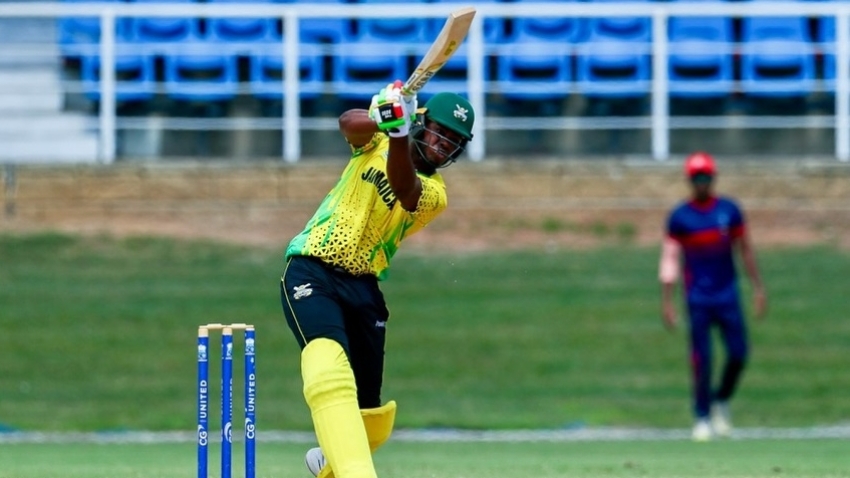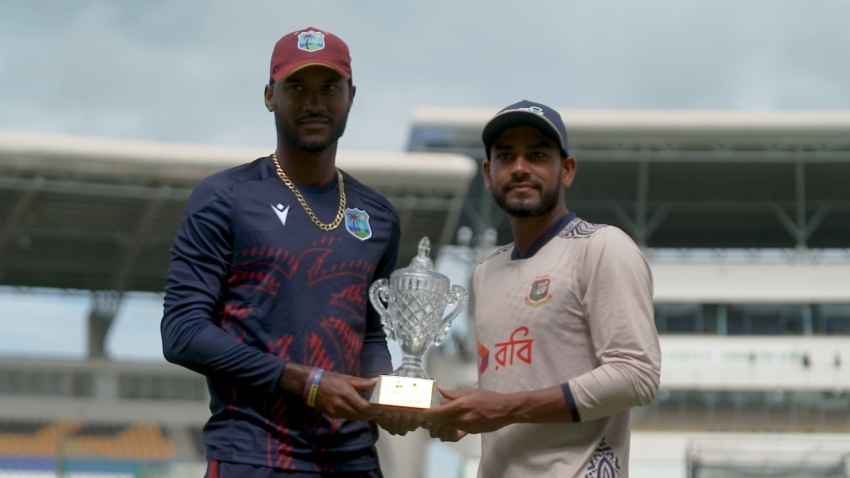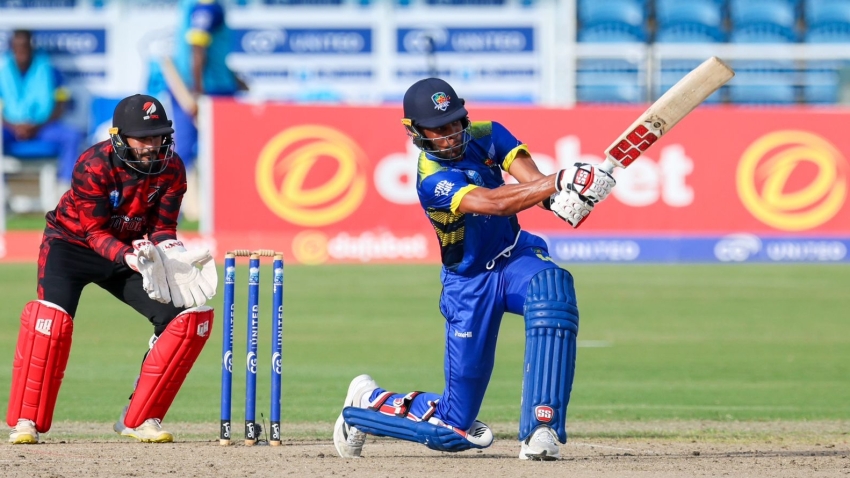West Indies captain Kraigg Brathwaite has struck a measured tone as his team readies to face Bangladesh in the opening contest of their two-match Test series at the Sir Vivian Richards Stadium in Antigua on Friday.
While acknowledging his team’s enthusiasm to return to the longest format, Brathwaite also stressed the need for focus and execution against what he believes is a talented Bangladesh team.
"Well, the guys are really looking forward to it. We haven't played Test cricket for a little while, so the guys are excited to get out there. You know it's a ground we love playing at; we enjoy playing here, and you know the guys are ready and raring to go,” Brathwaite said in a pre-game conference.
The Antigua venue has fond memories for the West Indies, most notably the dismissal of Bangladesh for a record-low 43 in 2018. However, Brathwaite insists that past triumphs are irrelevant heading into this series, as he warned against complacency.
His warning comes with the anticipation of a balanced wicket that will reward disciplined cricket, as he believes the pitch will offer movement and bounce for the pacers early on, with spin likely to play a role as the match progresses.
“Everything that’s gone is history. I mean, we're playing against a talented Bangladesh team now, so what's gone, is gone. We are obviously all looking forward to coming tomorrow and starting well in whatever we do,” he stated firmly.
“We got to focus on tomorrow morning and starting well; that's on our minds. Again, what is gone is gone, and we look forward to this challenge of playing good Test cricket,” Brathwaite noted.
That said, Brathwaite pointed to the invaluable presence of seasoned pacer Kemar Roach, both for his bowling prowess and his off-field mentorship. Roach’s devastating spell was pivotal in Bangladesh’s infamous 2018 collapse.
“Kemar is a very experienced player and obviously a Test bowler. On the field, he's great, but off the field, the information he shares with us is phenomenal. So having him around, I think, is very important for this team because on the field we know his statistics and he is playing here in the Caribbean as well.
“So I would say look forward to that. But, you know, on and off the field, I think Kemar is a true example of a leader for the West Indies going into this particular Test match,” the Barbadian said of his compatriot.
Interestingly, both Bangladesh and West Indies currently sit at the foot of the ICC World Test Championship standings in eighth and ninth positions, with both also coming off recent defeats to South Africa.
Despite that, Brathwaite expressed confidence in his batters, many of whom have recently shown form in the regional Super50 competition, as he highlighted the Caribbean side’s determination to finish the cycle on a high.
“Obviously, we looked at the points as a team, and we know we got four games left in this cycle and we could still pretty much come high up in the table. We just got to believe, and as I said, we are playing against a talented Bangladesh team, so it won't be easy, and we got to come ready and raring to go tomorrow morning,” Brathwaite said.
“I think they (batsmen) are in a good space; a few of the guys have played in the Super50 tournament and got some scores, so that was good to see. It's just all about that belief now; we’ve had a difficult year thus far, but we also had some good performances with the bat. It's just to draw from those performances as much as possible; we got four innings here, and it's just to bat and give it 100%,” he ended.
Meanwhile, Bangladesh enters the series missing key players like Mushfiqur Rahim, Shakib Al Hasan, and captain Najmul Hossain Shanto. However, all-rounder Mehidy Hasan Miraz, who will serve as stand-in captain, believes the team’s younger players have the opportunity to step up.
“It’s tough without some of our senior players, but we’ve worked hard in practice and are focused on playing positive cricket. We still have a good side right now. Some of the young players coming have a good opportunity to perform well in these conditions, so we actually believe that we can play well and we can come strongly,” Hasan Miraz shared.
West Indies have named a pace-heavy lineup that includes Roach, Jayden Seales, Alzarri Joseph, and Shemar Joseph to complement the batting of Brathwaite, Mikyle Louis, Keacy Carty, Kavem Hodge, Alick Athanaze, Justin Greaves, and wicketkeeper Joshua da Silva.
Bangladesh: Mehidy Hasan Miraz (Capt), Shadman Islam, Mahmudul Hasan Joy, Zakir Hasan, Mominul Haque, Mahidul Islam Ankon, Litton Das (wkt), Jaker Ali Anik, Taijul Islam, Shoriful Islam, Taskin Ahmed, Hasan Mahmud, Nahid Rana, Hasan Murad































